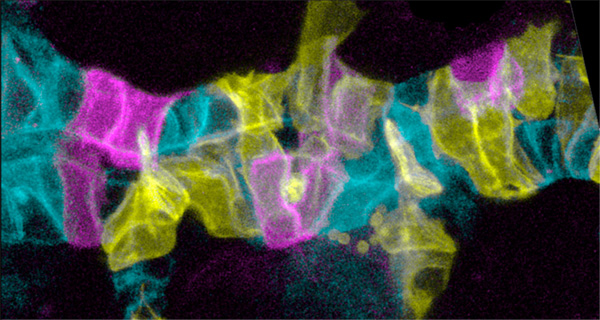Our research addresses developmental, cellular, molecular, and functional aspects of epithelial biology. In particular, we try to understand how the dimensions and shapes of epithelial tubes are controlled. Tubular epithelia of correct size and shape critical for the function of vital organs, such as our lungs, kidneys, and blood vessels. While tubule size is precisely controlled during normal organ development, one hallmark of diseases, including Polycystic Kidney Disease and vascular diseases, is the loss of the capacity of epithelial or endothelial cells to regulate tubular dimensions. Despite this medical significance, it is not understood how epithelial cells measure, adjust, and maintain defined tubular dimensions. To address these basic questions, we use primarily the Drosophila tracheal (respiratory) system, a network of gas-filled tubes, as an accessible and comparatively simple model. We apply a combination of molecular, genetic, cell biological, and quantitative imaging approaches to analyze cellular behavior during tube morphogenesis at the single-cell level.
Address
University of Münster
Institute of Integrative Cell Biology and Physiology
Multiscale Imaging Center
Röntgenstraße 16
D-48149 Münster
Contact
Secretary
Britta Jansen
☎ + 49 - 251 83 2 3894
✉ britta [dot] jansen [at] wwu [dot] de
Prof. Dr. Stefan Luschnig
☎ + 49 - 251 83 2 1696
? + 49 - 251 83 2 4686
✉ luschnig [at] uni-muenster [dot] de












